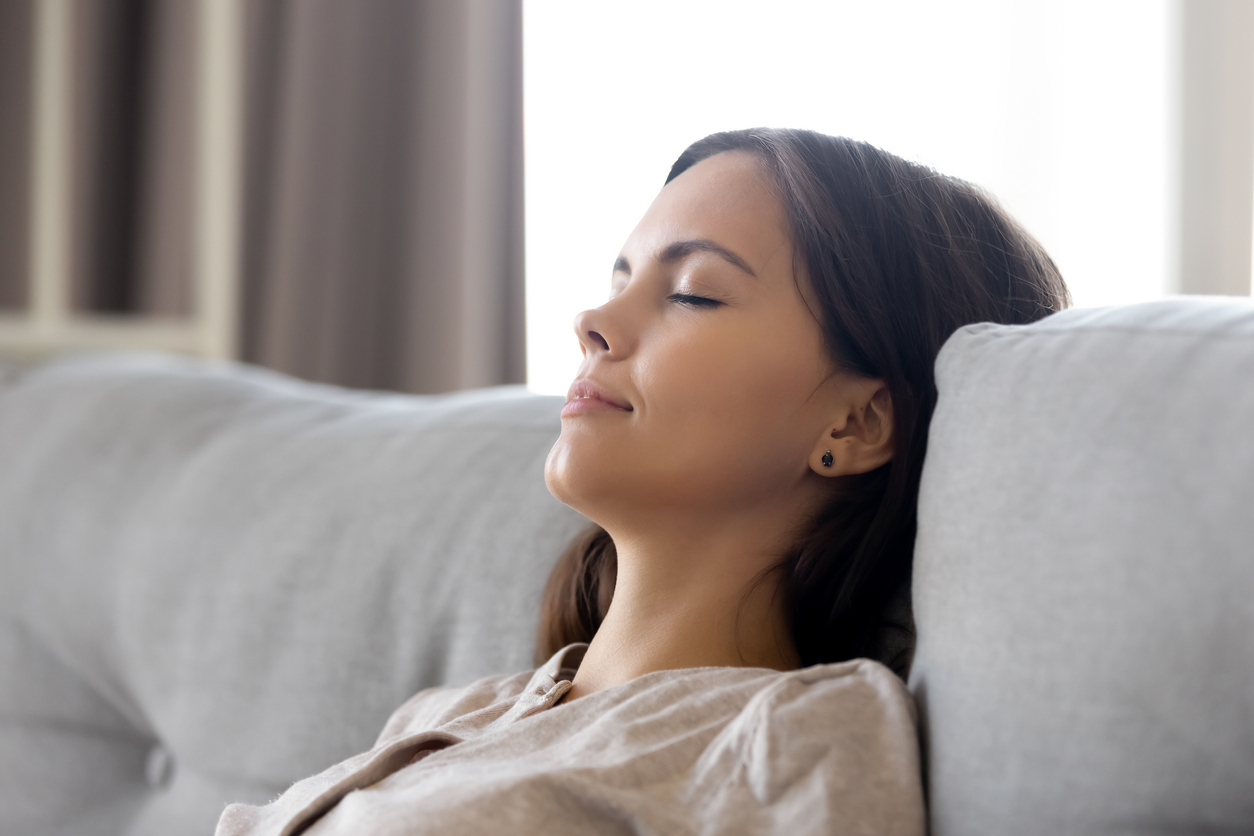Everyone knows how to breathe… but did you know your breathing rate and depth of breathing changes with your anxiety level? As your anxiety increases your breathing generally becomes shallow and more rapid. And, as your breathing becomes shallow and more rapid, your anxiety increases. It’s quite a vicious circle but by learning how to take control of your breathing you can also help take control of your anxiety.
Breathing is both a voluntary and involuntary action, meaning we breathe completely naturally without having to tell ourselves to breathe. On the other hand, if we want to control our breathing, say hold our breath for a few seconds, we can. Anxiety has that same type of voluntary and involuntary ability in each of us. We can choose to worry about anything voluntarily. Or, anxiety can creep up on us when we suspect danger or when our subconscious picks up on something that may have been frightful or dangerous in our past. This can then overwhelm us with feelings of anxiety or even a panic attack. However, just as we can control our breathing, we can also help control our anxiety levels. Our brain closely links breathing and anxiety together, both in the onset of anxiety as well as in our ability to increase or reduce that anxiety.
As we breathe in deeply, we take in oxygen. As we exhale, we expel carbon dioxide. Incoming oxygen helps to regenerate and repair our bodies while carbon dioxide is the toxic gas that gets released from our system. Shallow breathing decreases the supply of needed oxygen while also inhibiting the forcing out of carbon dioxide. This can have a negative impact throughout our bodies over time. So, you see, learning how to breathe for relaxation can lower our anxiety and help make us healthier.
So, let’s begin by learning to breathe deeply into your abdomen:
- Get comfortable either lying down or sitting in a relaxed position with your eyes closed.
- Place one hand on your stomach, the other hand on your chest, and take a nice deep breath. Notice which hand rises as you inhale. Are you breathing shallow breaths into your chest or are you taking nice deep breaths into your abdomen? Focus on trying to breathe deep, into your abdomen, as this is what your body needs to help you relax.
- Now, breathe deeply through your nose for about 6 or 7 seconds, then exhale through your mouth for 6 or 7 seconds. Slowly repeat this exercise for a period of 5 to 10 minutes or so. If you feel yourself getting light-headed, slow your breathing intervals down a bit and just focus on relaxing your entire being.
Practice these three simple steps on a daily basis and they will soon become a natural process for reducing your anxiety. Whenever you feel your anxiety starting to rise – just take a minute to stop and breathe. Following these steps will help your body get back into a relaxed state. In time, your body will learn to take a deep breath automatically, whenever you feel stressed, so start practicing daily now and relax.
